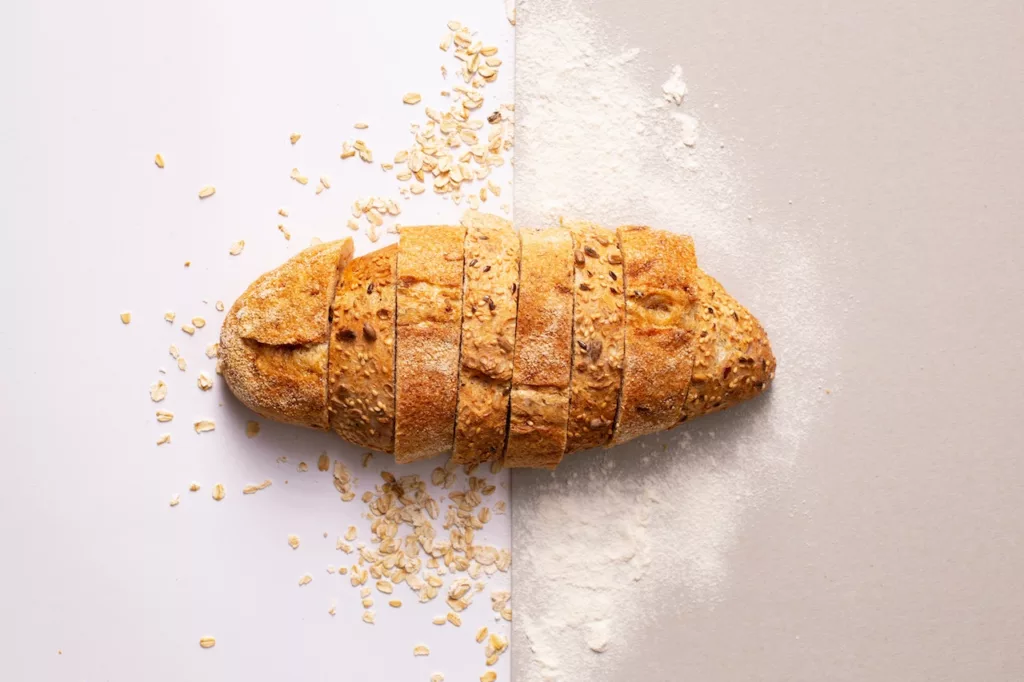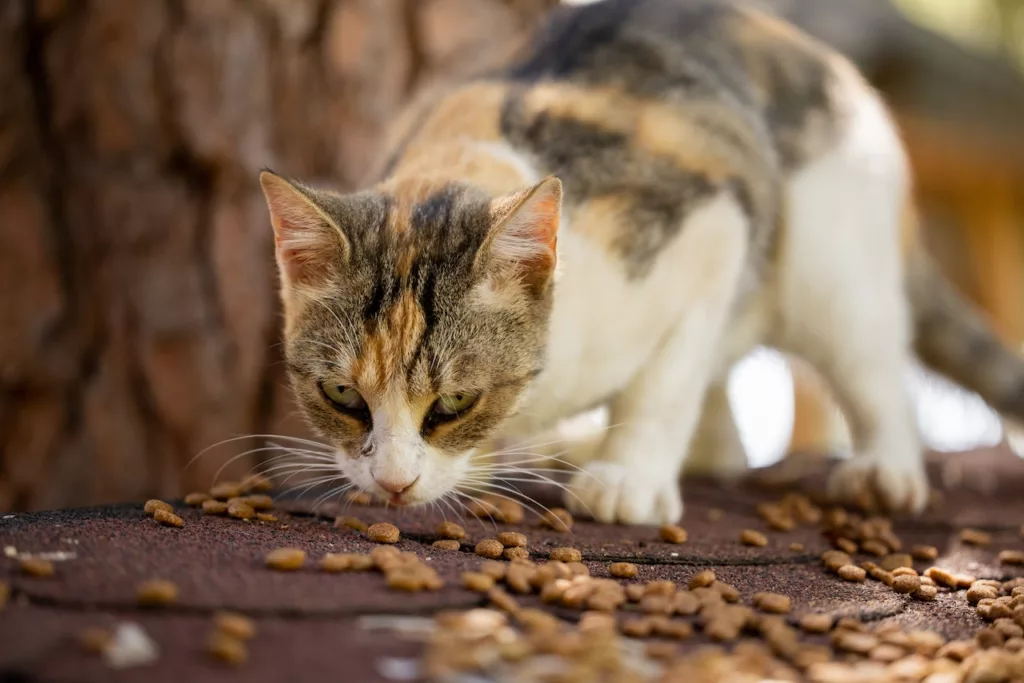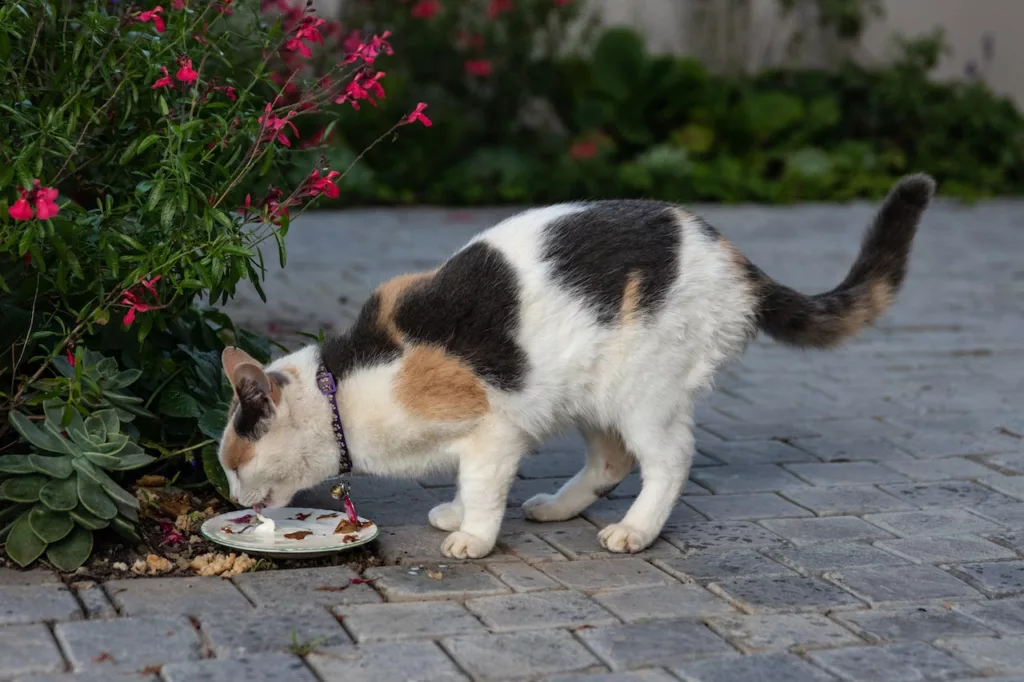In many households, it is customary to share our food with our pets. Perhaps you’ve witnessed someone offer their cat a piece of their meal or even the leftovers from their plate. Although this gesture may seem harmless, it can be quite risky for your cat’s health, depending on the ingredients and nutrients present in the food, as well as how it was prepared. But can cats eat bread?
One of the easiest foods to share with our feline friends is bread. Whether you’re snacking on a piece throughout the day or during a meal, you may find yourself giving your cat a nibble simply because they’re watching you or because they ask for it. However, it’s important to consider whether this practice is truly beneficial for your cat’s well-being.
Table of Contents

So, is bread a safe and healthy food for cats to consume? To answer this question and to understand the impact that bread can have on your cat’s body, we encourage you to read on.
You may be interested in : Can cats eat pineapple? do cats like pineapple
Can cats eat bread? – the answer
If you’re considering giving bread to your cat, it’s essential to know the nutritional composition of this food. Bread typically contains various ingredients that provide a high carbohydrate content, including different types of fiber, minerals, and vitamins. However, bread does not meet cats’ unique dietary requirements.
Decide if bread is safe for your cat’s diet after being informed. This can be done by consulting with a veterinarian to ensure that your cat’s nutritional needs are being met. It’s important to consider health risks when feeding cats bread, like obesity and diabetes.
By considering these factors, you can make the best decision for your cat’s health and well-being.
So, what nutrients does bread contain, and is it a beneficial or harmful food for cats? Let’s take a closer look.
Bread ingredients and nutrients
Most bread recipes contain wheat flour as their primary ingredient. Bakers may add salt, sugar, milk, butter, and yeast for the desired flavor and texture of the bread. Some bread also features additions such as oats, seeds, chocolate, raisins, or candied fruit.
Bread is high in carbohydrates, fiber, minerals, and vitamins due to its various ingredients. While bread may have benefits for humans in moderation, it may not be suitable for cats.

Is bread bad for cats ?
Unfortunately, the nutritional composition of bread means that it does not provide any benefits to cats and fails to meet their nutritional needs. Consuming bread can worsen weight problems and obesity in cats, as studies have shown their susceptibility to these conditions.
Bread’s high carbohydrate content can lead to weight issues in cats, causing obesity, diabetes, and other health problems. Cat food that meets high-quality standards is typically low in carbohydrates, which helps prevent health problems in cats. This is why bread, which is high in carbohydrates, is not suitable for their dietary needs.
While bread may attract cats with its scent, owners should recognize that it is not appropriate for them to consume it regularly. Cats should not eat bread regularly, as the nutritional analysis shows that it does not meet their dietary needs. We do not recommend giving bread to cats, even if some cat treats contain yeast.
In summary, cats should not eat bread as a regular part of their diet. Small amounts of occasional bread consumption are unlikely to cause serious health problems for cats, although this may vary depending on the individual cat’s health.
Read also: Can cats eat peanut butter?
How to feed cats with bread?
Feeding cats a homemade diet that contains high-quality animal protein is ideal, as this is their main nutrient requirement. However, it is important to consult with a veterinarian about the suitability of the recipes that your cat usually tries. Quality cat food provides essential nutrients such as vitamin A, healthy fats, and taurine – an amino acid required by cats – along with protein, which can also be obtained through some organ meats.
In contrast, bread is not suitable food for cats due to its high content of carbohydrates and fibers, which are not essential nutrients for these animals. Excessive bread consumption can cause obesity, diabetes, and other health issues in cats. Avoid feeding bread to cats regularly, despite its alluring smell. Instead, it is best to stick to high-quality cat food that meets all of its nutritional requirements.

What happens if a cat eats bread?
When deciding whether to feed bread to your cat regularly, it’s important to consider the possible negative effects. Even though a small piece of bread won’t hurt them, it’s best to steer clear of doing so frequently to avoid any unfavorable effects. Here are a few of the most typical effects of cats regularly consuming bread:
Obesity: Bread contains a lot of carbohydrates that the body has a hard time processing, especially in sedentary individuals. This causes weight gain quickly. Overconsumption of bread can harm vital organs like the heart, pancreas, and liver, which can result in serious health issues in cats. These issues include heart problems, pancreatitis, and fatty liver.
Diabetes: High sugar content in some bread can increase cats’ blood glucose levels, potentially leading to diabetes. A prolonged carbohydrate diet can bring on diabetes. Bread can cause cat diarrhea due to digestion issues.
Conclusion: Can cats eat bread?
In conclusion, bread is not a good food for cats because it lacks the nutrients they need to meet their dietary needs and can have harmful health effects like obesity, diabetes, and other health issues. Even though a small amount of bread won’t likely have a negative impact, cats shouldn’t consume it frequently. Stick to high-quality cat food for a balanced diet and avoid homemade diets.
References: Feeding your cat from : Veterinary Medicine
Bread Nutritions : Healthline